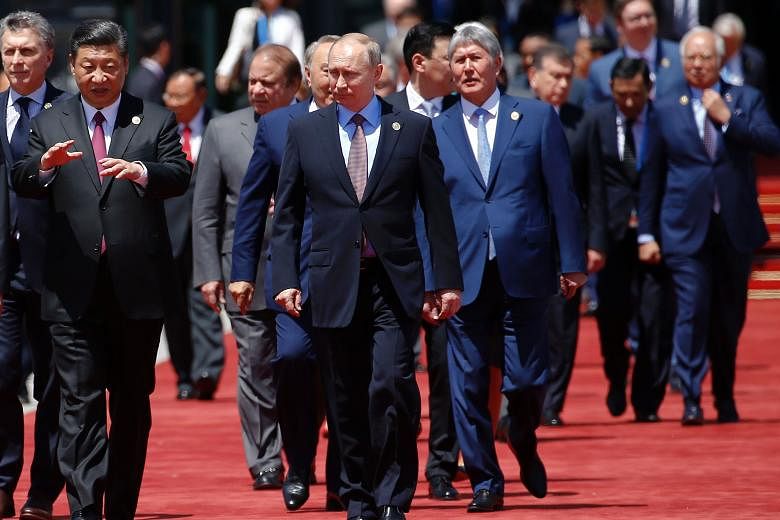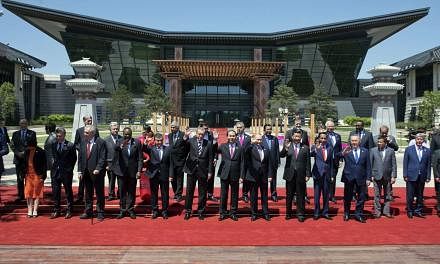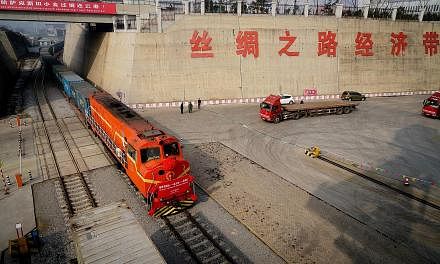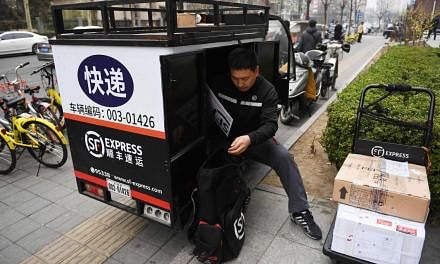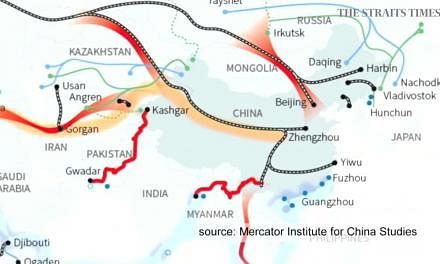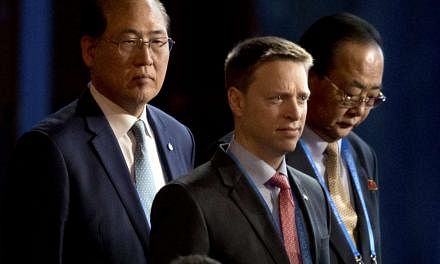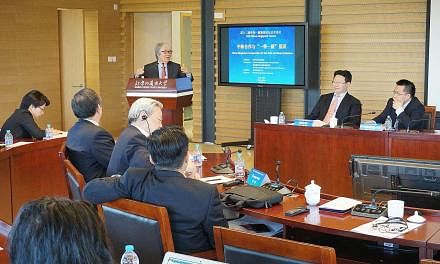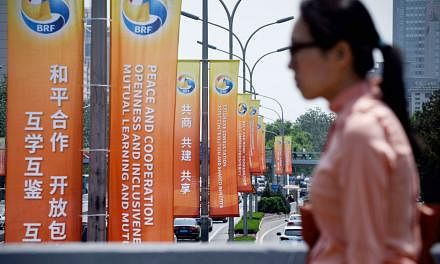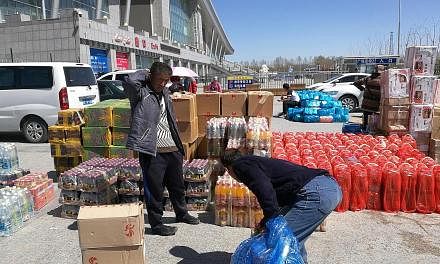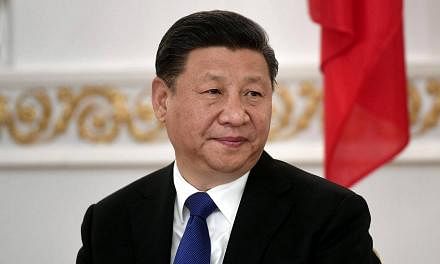Chinese President Xi Jinping's grand plan to revive ancient trade routes linking Asia, Africa and Europe to boost global commerce received fulsome praise from several leaders attending a forum to drum up support for it.
However, despite reassurances from the Chinese leader of the inclusiveness and openness of the Belt and Road initiative and that China would not impose its will on participating countries, some scepticism and concerns remain.
China pulled out all the stops to woo the estimated 1,500 delegates from more than 130 countries and 60 international organisations, including 29 government and state leaders, with lavish banquets and pledges of massive funding for infrastructure projects at the two-day forum.
Among the leaders who gave the thumbs-up to the initiative to build ports, roads, railways and industrial parks along sea and land trade routes were Russian President Vladimir Putin and Turkish President Recep Tayyip Erdogan.
Greek Prime Minister Alexis Tsipras also applauded it, saying: "In these times, when the temptation is great to respond to the crisis of globalisation by increasing isolation, and by raising walls, this initiative highlights a vision of connectivity, cooperation and dialogue (not just) across Europe and Asia, but also other parts of the world."
But while Mr Tsipras publicly praised the initiative, it was reported by Agence France-Presse (AFP) that Greece and several European Union countries indicated they would not sign one of the summit documents on trade.


-
Deals signed
-
China sealed a slew of 270 pacts with various Asian, African and European countries at the two-day Belt and Road Forum in Beijing that ended yesterday. Here are some of the deals.
SOUTH-EAST ASIA
•Memorandums of understanding on Belt and Road cooperation with Singapore, Myanmar, Malaysia and Timor Leste.
•Trade and economic agreements with Vietnam, Cambodia, Laos, the Philippines, Indonesia and Myanmar.
•A memorandum of understanding on the establishment of a China-Myanmar border economic cooperation zone with Myanmar.
•A memorandum of understanding on cooperation on electronic commerce with Vietnam.
•Export-Import Bank of China loan agreements on projects to build industrial parks, power plants and dams with the relevant government departments of Cambodia and Laos.
•China Development Bank financial cooperation agreements on chemical, metallurgical and petrochemical industries with the relevant institutions in Indonesia and Malaysia.
SOUTH ASIA
•Memorandum of understanding on the road map for the studies of the Diamer Basha Dam project and hydropower planning in North Pakistan, and an agreement on the adjustment of the China-Pakistan Economic Corridor energy project list with Pakistan.
•Framework agreement for the promotion of investment and economic cooperation with Sri Lanka.
•Memorandum of understanding on the construction of cross-border economic cooperation zones with Nepal.
CENTRAL ASIA
•Agreements on international transportation and strategy coordination with Uzbekistan.
•Memorandum of understanding on promoting major projects under industrial capacity and investment cooperation with Kyrgyzstan.
AFRICA
•China Development Bank financing cooperation agreements on port, electricity and industrial park projects with the relevant institutions in Egypt.
•Export-Import Bank of China loan agreements on an inland container depot project with the National Treasury of Kenya.
EUROPE
•The National Development and Reform Commission will set up the China-Russia Regional Cooperation Development Investment Fund, with funds totalling 100 billion yuan (S$20.3 million) and an initial injection of 10 billion yuan.
•Economic and trade cooperation agreements with Georgia, Albania, Bosnia and Herzegovina, Montenegro and Serbia.
•Memorandum of understanding concerning small and medium-sized enterprise cooperation with the Czech Republic.
This was because it did not sufficiently address European concerns on transparency of public procurement and social and environmental standards, AFP quoted a diplomatic source as saying. On Sunday, German Economy Minister Brigitte Zypries called for transparency to ensure that the calls for investment bids are "non-discriminatory".
Beyond issues linked to trade and investment, there are other concerns as well.
Mr Tom Miller, a senior analyst at economic research service Gavekal Research, said: "Even if China's intentions are primarily economic, its growing economic leverage will have geopolitical consequences.
"That might be an acceptable trade-off for small countries anxiously seeking economic development, but it will not be enough to assuage fears in countries like India that Xi Jinping's grand initiative is really a smokescreen for strategic control."
Indeed, India has refused to participate in the initiative because one of its key projects runs through a part of Kashmir that is administered by Pakistan and claimed by New Delhi.
India also worries about the expansion of China's influence through the initiative in its own backyard as, apart from Pakistan, Sri Lanka and Nepal are also taking part in it.
Even countries that have welcomed the initiative as beneficiaries are asking for greater clarity on the part of China about its intentions.
An editorial in the Jakarta Post yesterday admitted that Indonesia badly needed the huge infrastructure spending that China was bringing, but also noted that "China needs to nurture better understanding of its intentions and visions" for the initiative "to prevent unnecessary suspicions about its geopolitical ambition".
Such calls are not unjustified, given China's willingness in the past to use its economic clout for geopolitical purposes.
For instance, China opposes the deployment of an advanced anti-missile system in South Korea because it feels the system, with its powerful radars, undermines its security interests. To dissuade the South Koreans from deploying the system, it reportedly used various measures, including reducing the number of Chinese tourists going to South Korea and blocking Korean music videos on streaming services.
Dispelling concerns about its geopolitical intentions could prove to be one of the more difficult tasks for Beijing in getting other countries to take part in the initiative.

